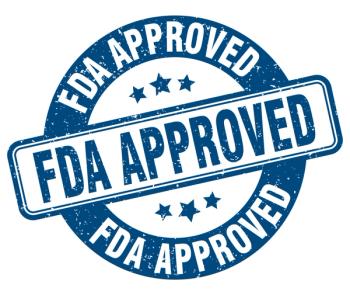
Sun safety and vitamin D controversy is red hot
The sun is not the only thing heating up this summer. Controversy is sizzling over whether it is safe for people to get vitamin D from exposure to sunlight and whether sunscreen ingredients can cause cancer. There have been reports claiming that some people aren't getting enough vitamin D because they avoid sun exposure and use sunscreens regularly. In addition, reports in the lay press and medical journals suggest that sunscreens may cause cancer.
The sun is not the only thing heating up this summer. Controversy is sizzling over whether it is safe for people to get vitamin D from exposure to sunlight and whether sunscreen ingredients can cause cancer. There have been reports claiming that some people aren't getting enough vitamin D because they avoid sun exposure and use sunscreens regularly. In addition, reports in the lay press and medical journals suggest that sunscreens may cause cancer.
The American Academy of Dermatology (AAD) didn't waste time issuing the following statement: "Reports linking the health benefits of vitamin D to sun exposure are leading to public confusion. For decades, dermatologists have advised the public to practice proper sun protection to prevent skin cancer. That same advice holds true today, despite any claims to the contrary."
Clay Cockerell, M.D., AAD president, stated, "While the health benefits of vitamin D are well known, prescribing sunshine to get vitamin D is highly irresponsible. Even with sunscreen, the average person receives enough incidental ultraviolet exposure through daily activities to achieve recommended vitamin D levels. People should not increase their exposure to either natural or artificial UV light, as there is a high risk of developing skin cancer from repeated exposure." The AAD recommends that anyone concerned about getting sufficient vitamin D should supplement a healthy diet with vitamins and fortified foods and beverages.
Many scientists feel there are people who, while they may not be vitamin D deficient, don't have as much of the vitamin circulating in their bodies as they need. But they should not be going to the tanning salon or the beach to get vitamin D, DeLeo said. "All tanning represents damage to the skin."
But that does not mean people should sit in the dark all day. One can get vitamin D from fish, milk, and cod liver oil, and vitamin supplements, DeLeo said. He recommends that adults concerned about vitamin D metabolism take in a total of 1000 IU of vitamin D per day-from food, supplements, or a combination of both.
David Leffell, M.D., professor of dermatology at Yale University, cautioned that the recent study suggesting that sun exposure prevents cancer was an epidemiologic, nutritional study. "These studies are very difficult to conduct with a great deal of predictive value. It is important to balance nutritional studies against the known scientific evidence that sun causes skin cancer. Researchers who diminish the seriousness of skin cancer may do so because of a lack of familiarity with skin cancer in general and melanoma in particular."
DeLeo noted that sunscreen ingredients have been tested in animals for years and none of them has been shown to cause cancer. Three recently conducted meta analysis studies show there is no increased cancer risk in the use of sunscreens.
Leffell added, "The direct carcinogenic effect of sunscreen is alleged, but I am not aware of convincing studies suggesting that the risk of using sunscreen is greater than the risk of skin cancer from sun exposure, which is a scientific relationship."
DeLeo suggested that pharmacists pass along the following sun safety tips to patients:
DeLeo noted that the American Academy of Pediatrics has stated that it is OK to apply small amounts of sunscreen on infants under six months of age. However, he cautioned, "they are not running on the beach. You should protect them with clothing and an umbrella."
Newsletter
Pharmacy practice is always changing. Stay ahead of the curve with the Drug Topics newsletter and get the latest drug information, industry trends, and patient care tips.























